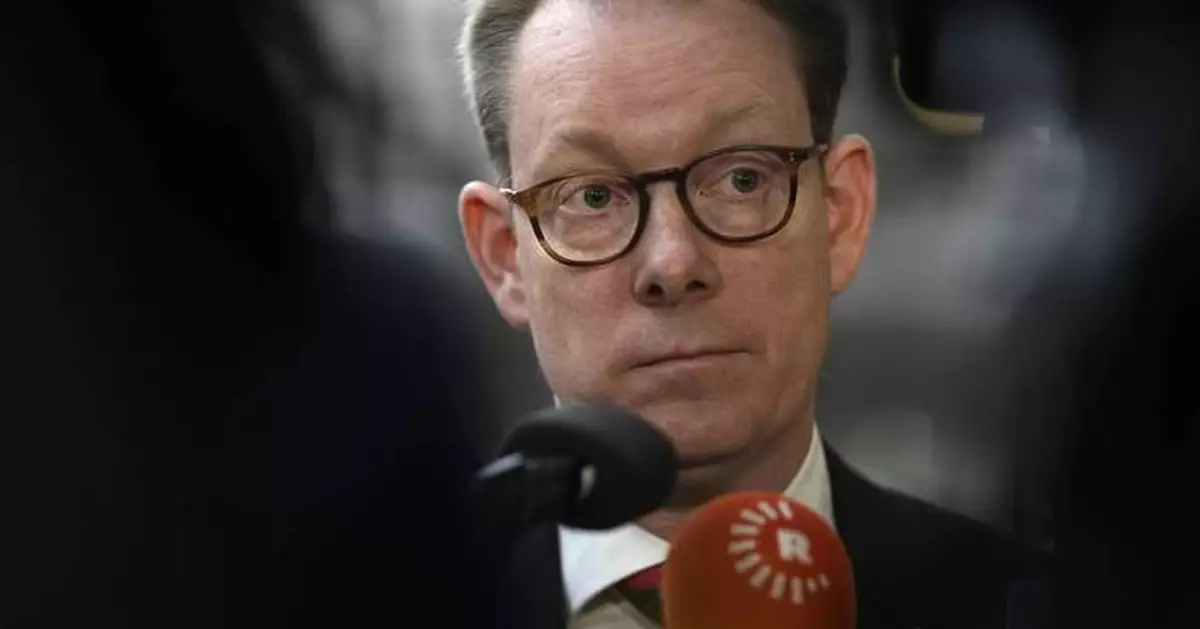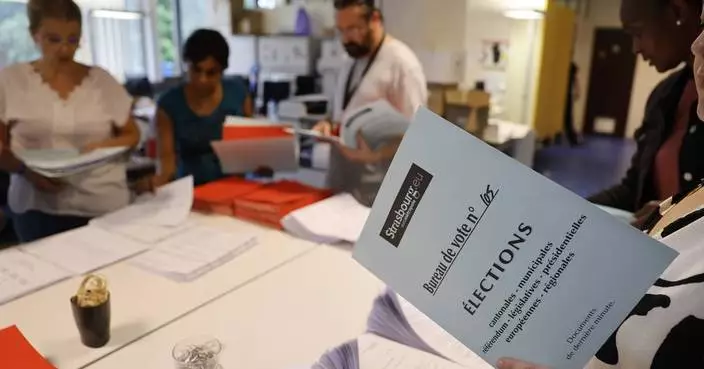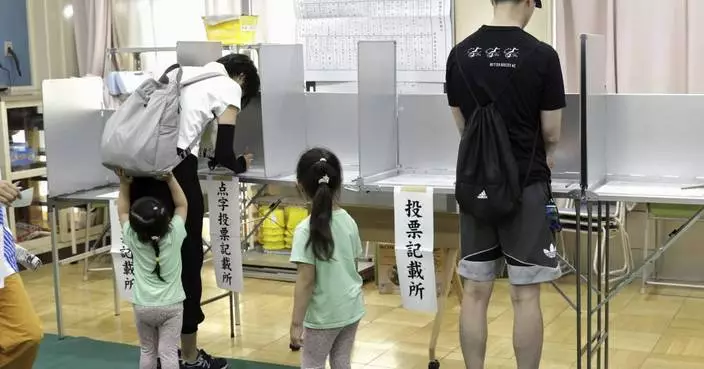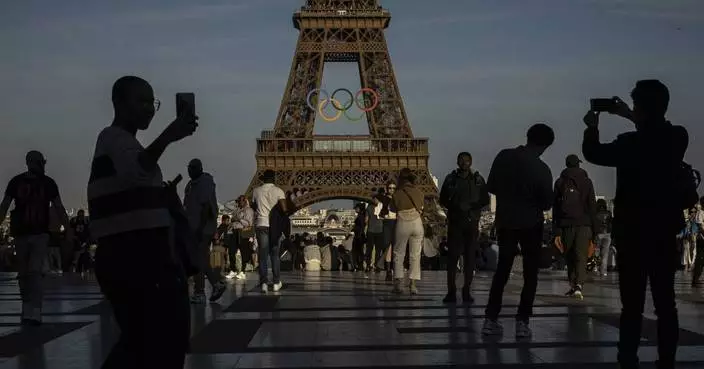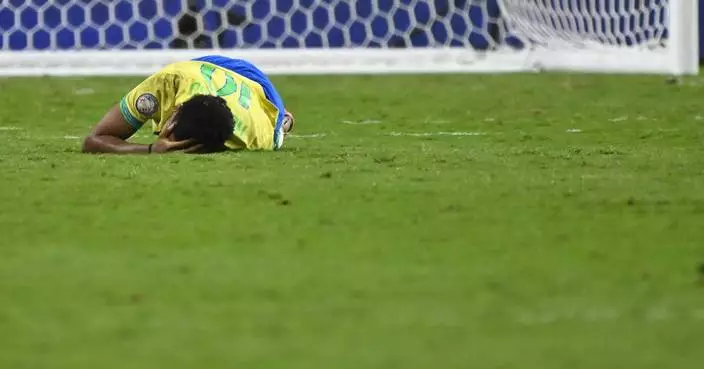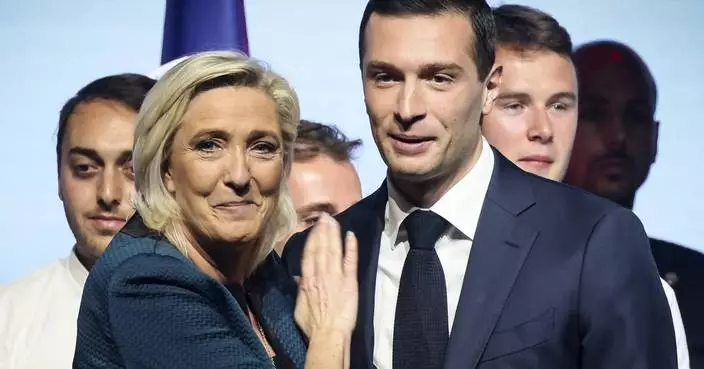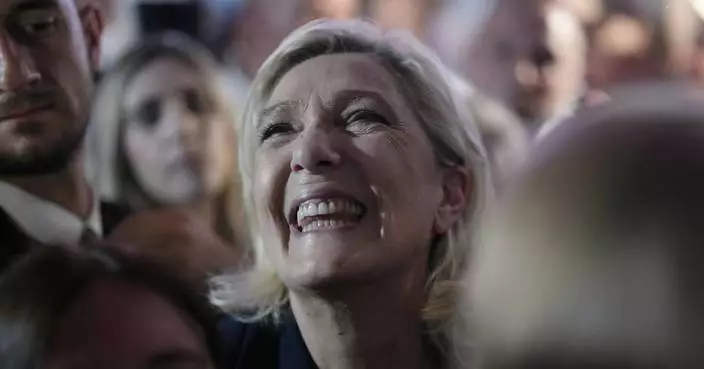COPENHAGEN, Denmark (AP) — Sweden’s Foreign Ministry said Thursday it will summon the Iraqi chargé d’affaires in Stockholm to protest against death sentences received by Swedes in Iraq.
Last month, Stockholm protested over a death sentence given to a Swede. On Thursday, two more cases were confirmed, bringing the total to at least three Swedes who have been sentenced to death in Iraq in recent weeks. All were related to a deadly shooting earlier this year, the Foreign Ministry said.
The ministry said it has also received information that a fourth Swedish citizen has received a death sentence that could be drug related. However, “there are certain uncertainties regarding the person’s identity, which is why the Ministry of Foreign Affairs cannot confirm the sentence at the moment,” it said.
“We are acting to ensure that the sentences are not carried out," the ministry said, adding that Sweden condemns any use of the death penalty. "We oppose it always, everywhere and under any circumstances,” it said.
The ministry said it has been in contact with the Swedes and their families but declined to give further details, citing privacy regulations.
Swedish media have said the three Swedes are accused of involvement in the murder of a criminal in Iraq. The killing earlier this year is believed to be linked to a gang war between two Swedish groups that has resulted in numerous killings and attempted murders, some occurring outside Sweden. The Foxtrot network and its rival, Rumba, have been involved in deadly feuds for years.
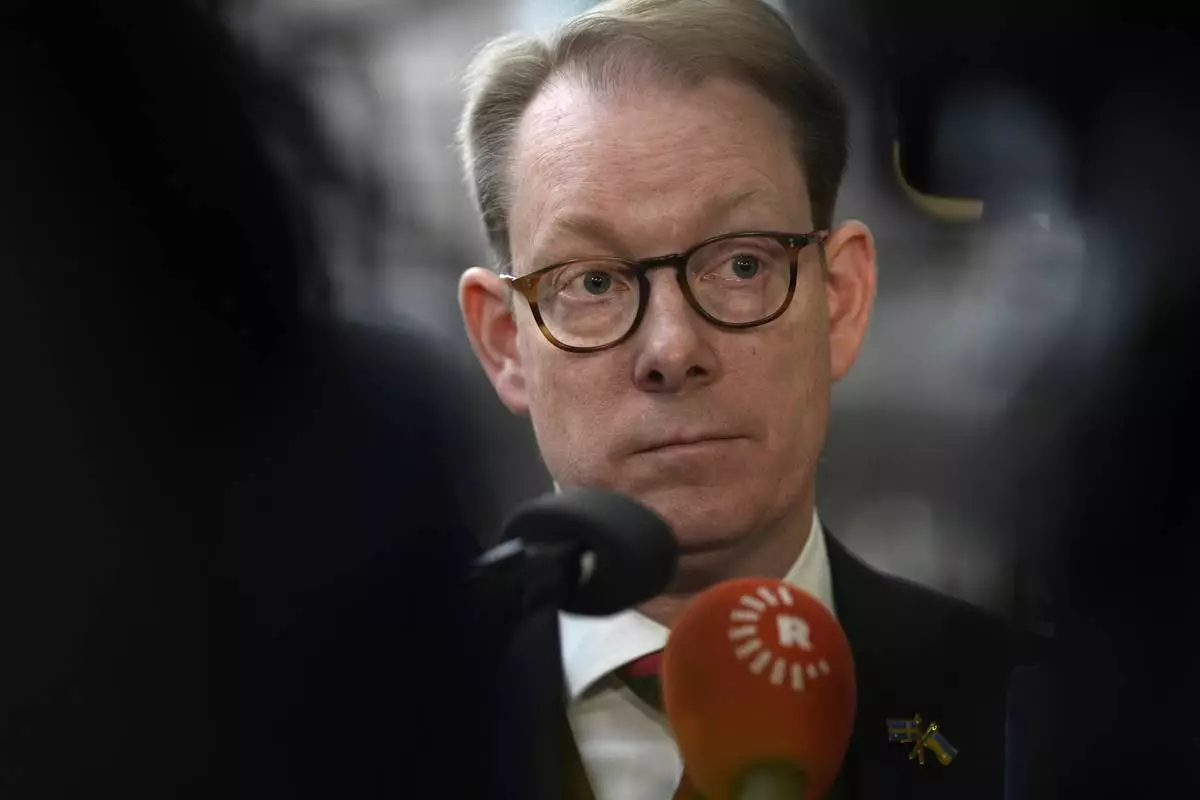
FILE - Sweden's Foreign Minister Tobias Billstrom speaks with the media as he arrives for a meeting of EU foreign ministers at the European Council building in Brussels, Jan. 22, 2024. Sweden’s Foreign Ministry said Thursday it will summon the Iraqi chargé d’affaires to protest once again against more death sentences handed down to Swedes in Iraq. (AP Photo/Virginia Mayo, File)
PARIS (AP) — Voting has begun in France on Sunday in pivotal runoff elections that could hand a historic victory to Marine Le Pen’s far-right National Rally and its inward-looking, anti-immigrant vision — or produce a hung parliament and years of political deadlock.
French President Emmanuel Macron took a huge gamble in dissolving parliament and calling for the elections after his centrists were trounced in European elections on June 9.
The snap elections in this nuclear-armed nation will influence the war in Ukraine, global diplomacy and Europe’s economic stability, and they’re almost certain to undercut President Emmanuel Macron for the remaining three years of his presidency.
The first round on June 30 saw the largest gains ever for the anti-immigration, nationalist National Rally, led by Marine Le Pen.
Sunday’s vote determines which party controls the National Assembly and who will be prime minister. If support is further eroded for Macron’s weak centrist majority, he will be forced to share power with parties opposed to most of his pro-business, pro-European Union policies.
Racism and antisemitism have marred the electoral campaign, along with Russian cybercampaigns, and more than 50 candidates reported being physically attacked — highly unusual for France. The government is deploying 30,000 police on voting day.
The heightened tensions come while France is celebrating a very special summer: Paris is about to host exceptionally ambitious Olympic Games, the national soccer team reached the semifinal of the Euro 2024 championship, and the Tour de France is racing around the country alongside the Olympic torch.
Meanwhile, 49 million voters are in the midst of the country’s most important elections in decades.
France could have its first far-right government since the Nazi occupation in World War II if the National Rally wins an absolute majority and its 28-year-old leader Jordan Bardella becomes prime minister. The party came out on top in the previous week's first-round voting, followed by a coalition of center-left, hard-left and Green parties, and Macron’s centrist alliance.
The outcome remains highly uncertain. Polls between the two rounds suggest that the National Rally may win the most seats in the 577-seat National Assembly but fall short of the 289 seats needed for a majority. That would still make history, if a party with historic links to xenophobia and downplaying the Holocaust, and long seen as a pariah, becomes France’s biggest political force.
If it wins the majority, Macron would be forced to share power in an awkward arrangement known in France as "cohabitation."
Another possibility is that no party has a majority, resulting in a hung parliament. That could prompt Macron to pursue coalition negotiations with the center-left or name a technocratic government with no political affiliations.
Both would be unprecedented for modern France, and make it more difficult for the European Union’s No. 2 economy to make bold decisions on arming Ukraine, reforming labor laws or reducing its huge deficit. Financial markets have been jittery since Macron surprised even his closest allies in June by announcing snap elections after the National Rally won the most seats for France in European Parliament elections.
Many French voters, especially in small towns and rural areas, are frustrated with low incomes and a Paris political leadership seen as elitist and unconcerned with workers' day-to-day struggles. National Rally has connected with those voters, often by blaming immigration for France's problems, and has built up broad and deep support over the past decade.
Le Pen has softened many of the party's positions — she no longer calls for quitting NATO and the EU — to make it more electable. But the party’s core far-right values remain. It wants a referendum on whether being born in France is enough to merit citizenship, to curb rights of dual citizens, and give police more freedom to use weapons.
The second-round voting began Saturday in France’s overseas territories from the South Pacific to the Caribbean, Indian Ocean and North Atlantic. The elections wrap up Sunday at 8 p.m. (1800 GMT) in mainland France. Initial polling projections are expected Sunday night, with early official results expected late Sunday and early Monday.
Regardless of what happens, Macron said he won’t step down and will stay president until his term ends in 2027.
Surk reported from Nice, France.
Follow AP’s global election coverage at https://apnews.com/hub/global-elections/
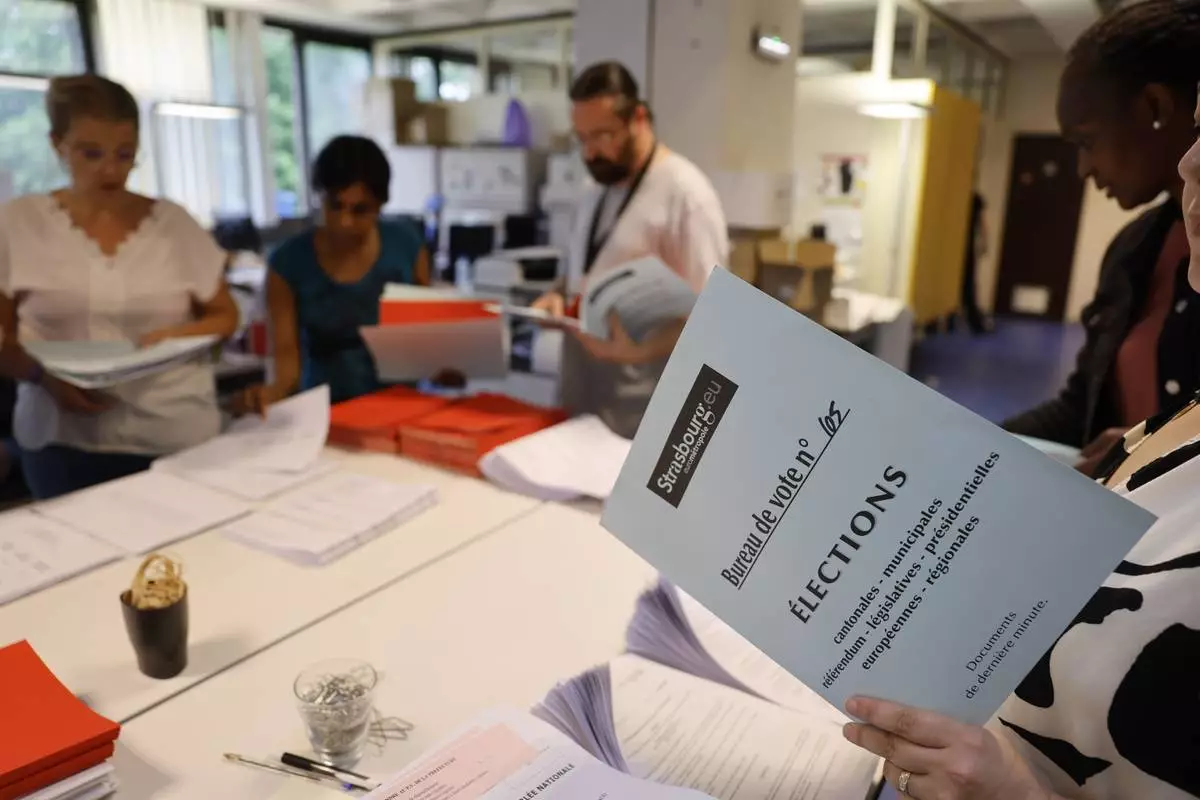
Local city officials prepare voting kits for the legislative election in Strasbourg, eastern France, on Saturday, July 6, 2024. Voters face a decisive choice in the runoff Sunday of snap parliamentary elections that could produce the country’s first far-right government since the World War II Nazi occupation. (AP Photo/Jean-Francois Badias)
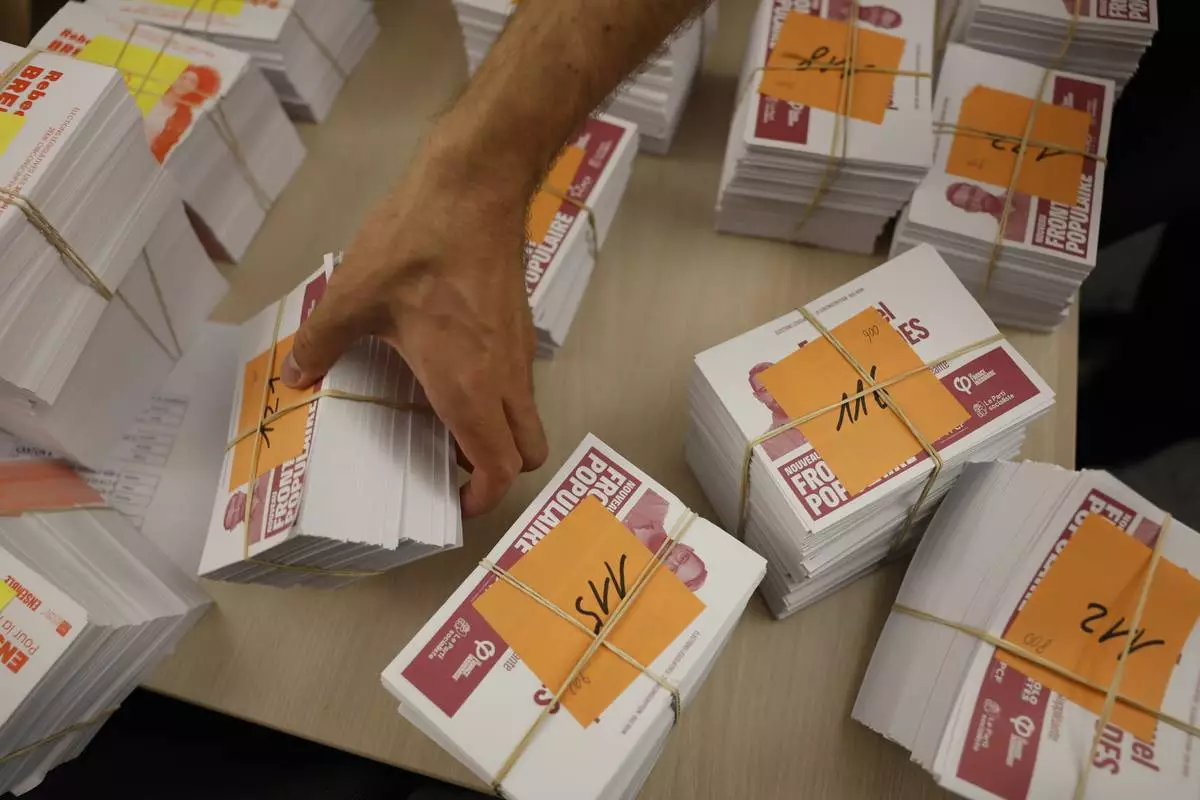
Local city officials prepare voting kits for the legislative election in Strasbourg, eastern France, on Saturday, July 6, 2024. Voters face a decisive choice in the runoff Sunday of snap parliamentary elections that could produce the country’s first far-right government since the World War II Nazi occupation. (AP Photo/Jean-Francois Badias)
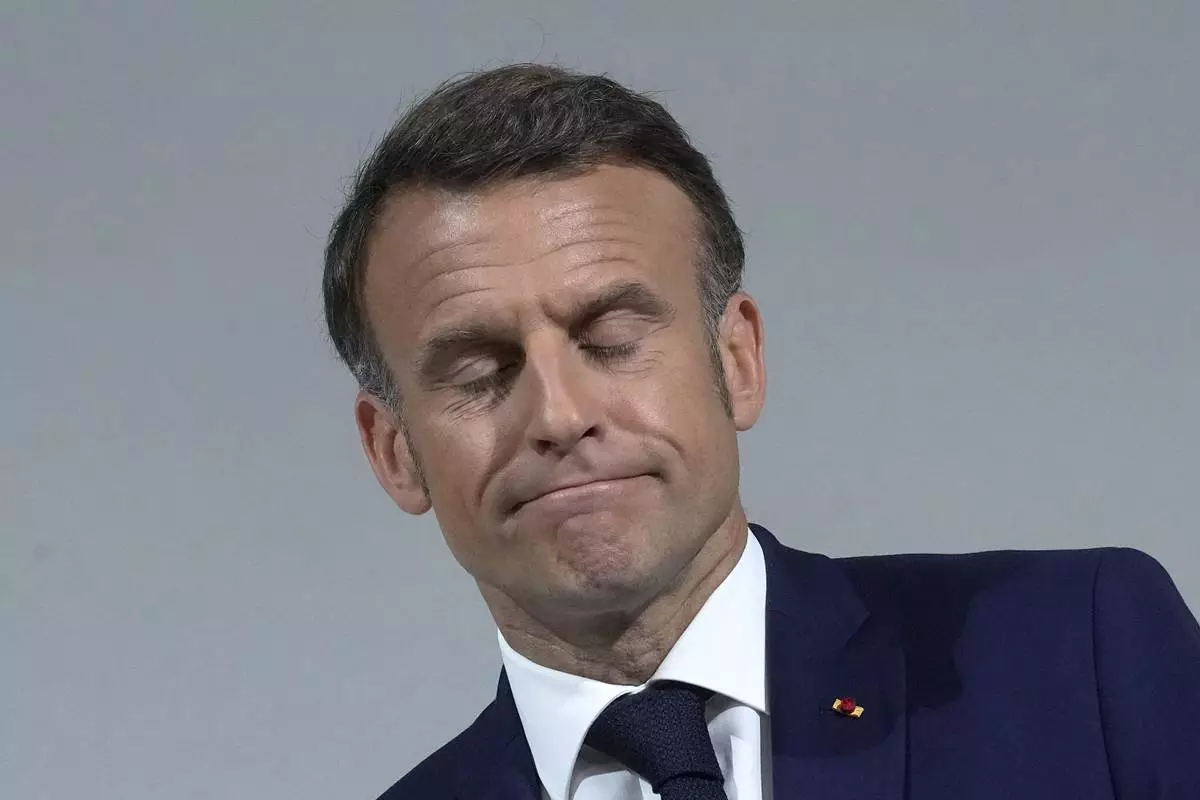
FILE - French President Emmanuel Macron reacts as he delivers a speech, Wednesday, June 12, 2024 in Paris. French President Emmanuel Macron's expected political failure in decisive parliamentary elections Sunday may paralyze the country, weaken him abroad and overshadow his legacy, just as France is about to be in the global spotlight as host of the Paris Olympics. (AP Photo/Michel Euler, File)
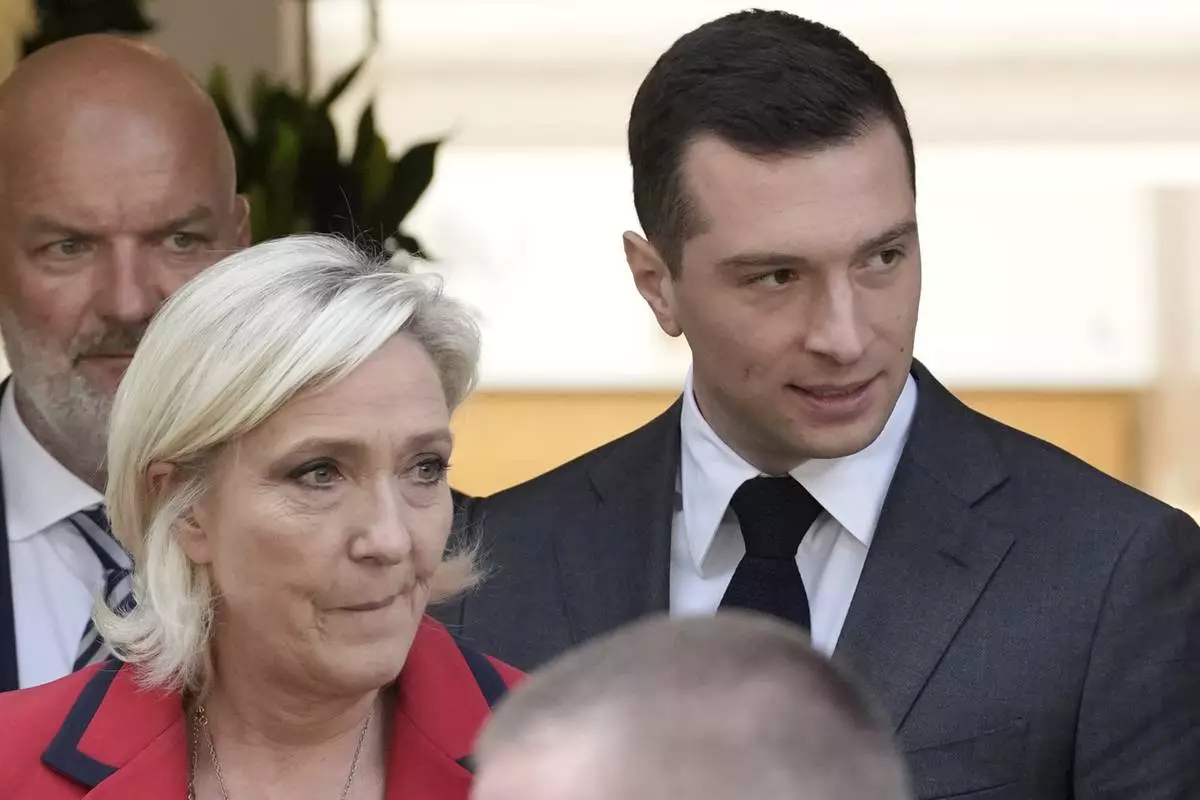
FILE - Far-right National Rally party president Jordan Bardella, right, leaves with far-right leader Marine Le Pen after a press conference, Monday, June 24, 2024 in Paris. Both Le Pen and Bardella have made clear that, in power, they would seek to rein-in Macron and exert themselves in defense, European and foreign affairs decision-making. (AP Photo/Christophe Ena, File)



